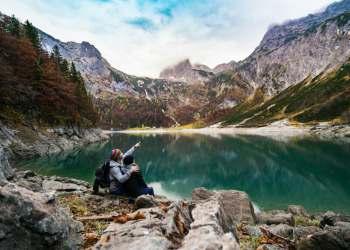Embarking on a safari in Africa is a dream come true for wildlife enthusiasts and adventurers alike. From the vast plains of the Serengeti to the dense jungles of Uganda, Africa offers an unparalleled opportunity to witness some of the most iconic and majestic creatures on the planet. In this comprehensive guide, we’ll explore the magic of African safaris, discuss how to choose the right safari destination, provide tips for wildlife encounters, and much more.
1. The Magic of African Safaris
African safaris hold a special allure for travelers seeking an immersive wildlife experience. The continent’s diverse ecosystems are home to an incredible array of animals, from the Big Five—lion, elephant, buffalo, leopard, and rhinoceros—to lesser-known species like the African wild dog and the elusive cheetah. Beyond the thrill of spotting wildlife, safaris offer a deeper connection to nature and a greater understanding of the delicate balance of life in the African wilderness.
2. Choosing the Right Safari Destination
When planning a safari adventure, it’s essential to choose the right destination based on your interests, budget, and time constraints. Whether you’re drawn to the open savannahs of Kenya, the lush wetlands of Botswana, or the remote wilderness of Namibia, Africa offers a variety of safari experiences to suit every traveler’s preferences. Popular safari destinations such as Tanzania’s Serengeti National Park and South Africa’s Kruger National Park are renowned for their abundant wildlife and stunning landscapes.
3. Wildlife Encounters on Safari
One of the highlights of any safari is the opportunity to observe African wildlife in its natural habitat. From the majestic herds of elephants roaming the savannah to the stealthy predators stalking their prey, every safari drive holds the promise of thrilling wildlife encounters. With the help of experienced guides and trackers, travelers can spot a wide range of animals, including big cats, giraffes, zebras, and countless bird species.
4. Types of Safari Experiences
Safaris offer a variety of experiences beyond traditional game drives. Walking safaris allow travelers to explore the bush on foot, gaining a deeper appreciation for the sights, sounds, and scents of the wilderness. Hot air balloon safaris offer a unique perspective from above, providing panoramic views of the landscape and its inhabitants. For those seeking a more immersive experience, overnight stays at luxury lodges or tented camps offer the chance to sleep under the stars surrounded by the sounds of the African night.
5. Preparing for Your Safari Adventure
Proper preparation is key to a successful safari experience. Packing essentials such as lightweight clothing, sturdy footwear, and insect repellent ensures comfort and safety in the bush. It’s also important to bring a good camera and binoculars for capturing memorable wildlife sightings. Health and safety considerations, including vaccinations and travel insurance, should not be overlooked when planning a safari trip.
6. Cultural Experiences on Safari
In addition to wildlife encounters, safaris offer opportunities to connect with local communities and learn about African cultures. Many safari operators incorporate visits to nearby villages or cultural centers, where travelers can interact with residents, participate in traditional activities, and gain insight into local customs and traditions. These cultural experiences add depth and richness to the safari journey, fostering a greater understanding and appreciation of Africa’s diverse heritage.
7. Photography Tips for Wildlife Watching
Photography is an essential part of the safari experience, allowing travelers to capture memories that will last a lifetime. Whether you’re using a smartphone or a professional camera, there are several techniques for taking stunning wildlife photos on safari. Patience, persistence, and an understanding of animal behavior are key to capturing that perfect shot. Additionally, it’s essential to respect wildlife and their habitats by maintaining a safe distance and avoiding disruptive behavior.
8. Conservation and Sustainable Tourism
As visitors to Africa’s wilderness areas, it’s important to support conservation efforts and promote sustainable tourism practices. Ecotourism initiatives play a vital role in preserving fragile ecosystems and protecting endangered species. By choosing responsible tour operators, minimizing our environmental impact, and supporting local communities, we can ensure that future generations will have the opportunity to experience the wonders of African safaris.
Conclusion
African safaris offer an unparalleled opportunity to connect with nature, witness incredible wildlife, and create memories that will last a lifetime. Whether you’re a seasoned traveler or embarking on your first safari adventure, the beauty and majesty of Africa’s wilderness are sure to leave a lasting impression. So pack your bags, grab your camera, and get ready to embark on the safari of a lifetime.

FAQs
- What is the best time of year to go on a safari in Africa?
- The best time for safari varies depending on the destination and the type of wildlife you want to see. Generally, the dry season (May to October) offers excellent game viewing opportunities, while the wet season (November to April) is ideal for birdwatching and lush landscapes.
- Are safaris suitable for families with young children?
- Many safari lodges and camps welcome families with children of all ages, providing kid-friendly activities and accommodations. However, it’s essential to check the age restrictions and safety guidelines of each safari operator before booking.
- How close can you get to wild animals during a safari?
- Safari vehicles are designed to keep a safe distance from wild animals to ensure the safety of both visitors and wildlife. While it’s possible to get relatively close to some animals, such as elephants and giraffes, it’s essential to follow the instructions of your guide and respect the animals’ space.
- What should I do if I encounter a dangerous animal on safari?
- If you encounter a dangerous animal such as a lion or a buffalo, it’s essential to remain calm and follow your guide’s instructions. Avoid making sudden movements or loud noises, and slowly back away from the animal if possible. In the rare event of an attack, your guide will know how to respond appropriately to ensure your safety.
- Can I customize my safari itinerary to include specific wildlife sightings?
- Many safari operators offer customizable itineraries tailored to your interests and preferences. Whether you’re hoping to see the Great Migration in Tanzania or track mountain gorillas in Rwanda, there are plenty of options to create the safari experience of your dreams.





